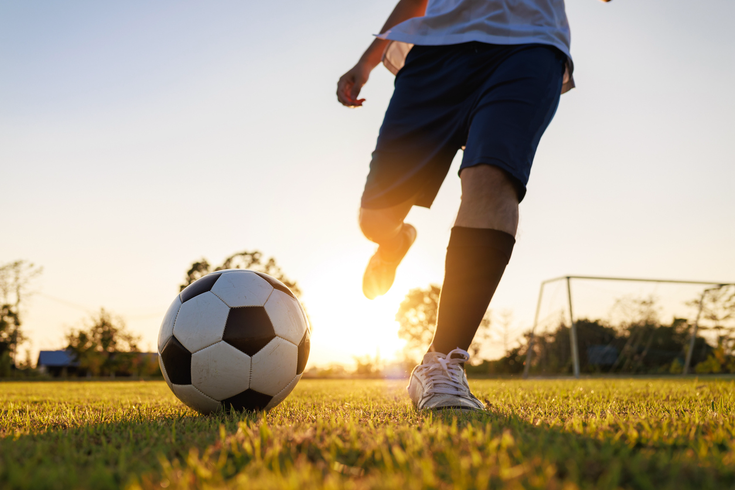Health
Enhancing Mental Health Support for Student Athletes

Participating in sports can significantly benefit the mental health of young athletes, yet the pressures accompanying competitive sports often lead to increased stress and anxiety. In the United States, millions of youths engage in sports through schools and community leagues, with studies highlighting advantages such as improved academic performance, confidence, and social skills. However, the intense pressure to excel can result in negative consequences, including self-doubt, poor performance, and even depression.
Prioritizing Mental Health in Athletics
Recognizing the importance of mental well-being for student athletes, organizations like Independence Blue Cross and the Philadelphia College of Osteopathic Medicine are taking action. They support the Philadelphia Union Foundation’s HeadFirst initiative, which integrates mental health education into athletic programs. This innovative approach equips student athletes with essential tools, such as goal setting, visualization techniques, and stress management strategies, to foster a more positive sporting experience.
According to Mitch Greene, Ph.D., a licensed clinical and sport psychologist, student athletes often grapple with the expectations placed on them by parents, teachers, coaches, and peers. This pressure can lead to what Dr. Greene refers to as “mind chatter”—a cycle of negative thoughts that hampers clear thinking. He explains, “When a teen’s mind chatter takes over, fears often become exaggerated. Sports can already carry a lot of weight with identity entangled in performance. When a student-athlete’s mind chatter becomes the predominant voice they hear, that weight can increase, creating even more anxious, negative feelings.”
Strategies for Managing Stress
Dr. Greene emphasizes that multiple factors can contribute to an athlete’s feelings of stress and anxiety. To help teens navigate these challenges, he suggests several practical techniques:
– **Less talking, more listening**: Encourage open discussions about sports without judgment. This can alleviate anxiety.
– **Create a “no sports” conversation zone**: Designate specific times when sports discussions are off-limits, allowing teens to focus on other aspects of life.
– **Prioritize diverse activities**: Ensure that young athletes have opportunities to engage in academic, creative, and social pursuits outside of sports.
– **Emphasize small wins**: Celebrate the benefits of participation, such as teamwork and enjoyment, rather than solely focusing on outcomes.
– **Support their choices**: Acknowledge when a sport may become mentally or physically unhealthy. Encourage teens to take breaks when necessary, reinforcing that their identity is multifaceted.
While the benefits of athletic participation are substantial, the accompanying pressures can lead to significant stress. Open communication about feelings and experiences is crucial for helping young athletes cope with anxiety.
For more resources on mental health and self-care strategies, visit ibx.com/knowyourmind. This initiative aims to provide guidance and support for student athletes and their families, ensuring that the journey in sports is a balanced and healthy one.
-

 Lifestyle3 months ago
Lifestyle3 months agoLibraries Challenge Rising E-Book Costs Amid Growing Demand
-

 Sports3 months ago
Sports3 months agoTyreek Hill Responds to Tua Tagovailoa’s Comments on Team Dynamics
-

 Sports3 months ago
Sports3 months agoLiverpool Secures Agreement to Sign Young Striker Will Wright
-

 Lifestyle3 months ago
Lifestyle3 months agoSave Your Split Tomatoes: Expert Tips for Gardeners
-

 Lifestyle3 months ago
Lifestyle3 months agoPrincess Beatrice’s Daughter Athena Joins Siblings at London Parade
-

 World3 months ago
World3 months agoWinter Storms Lash New South Wales with Snow, Flood Risks
-

 Science3 months ago
Science3 months agoTrump Administration Moves to Repeal Key Climate Regulation
-

 Science2 months ago
Science2 months agoSan Francisco Hosts Unique Contest to Identify “Performative Males”
-

 Business3 months ago
Business3 months agoSoFi Technologies Shares Slip 2% Following Insider Stock Sale
-

 Science3 months ago
Science3 months agoNew Tool Reveals Link Between Horse Coat Condition and Parasites
-

 Sports3 months ago
Sports3 months agoElon Musk Sculpture Travels From Utah to Yosemite National Park
-

 Science3 months ago
Science3 months agoNew Study Confirms Humans Transported Stonehenge Bluestones








